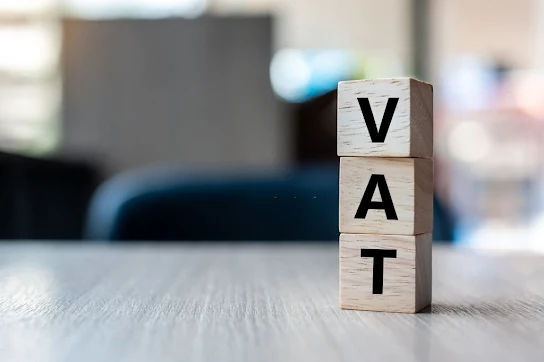Welcome to our comprehensive guide on Value Added Tax (VAT) in the United Arab Emirates (UAE) and specifically in Dubai. As experts in the field of real estate investment, we understand the importance of staying up-to-date with the latest tax regulations and their implications. In this article, we will provide you with a detailed overview of VAT in the UAE and Dubai, focusing on its impact on real estate investors. By the end of this guide, you will have a solid understanding of VAT and how it relates to your investment ventures.
 |
| VAT in the UAE - Guide for Real Estate Investors |
Understanding VAT in the UAE
What is VAT?
Value Added Tax (VAT) is a consumption tax imposed on goods and services at each stage of production and distribution. It is a significant source of revenue for governments worldwide, including the UAE. VAT is applied to the value added to a product or service at each step of the supply chain. It is ultimately borne by the end consumer.
VAT in the UAE: Overview
In the UAE, VAT was introduced on January 1, 2018, as part of the government's efforts to diversify revenue streams and reduce reliance on oil. The standard VAT rate in the UAE is 5%, and it applies to most goods and services unless specifically exempted or zero-rated.
VAT Registration for Real Estate Investors
Real estate investors in the UAE need to be aware of their VAT obligations. If the annual value of taxable supplies made by an investor exceeds the mandatory registration threshold, which is currently set at AED 375,000, they are required to register for VAT. However, even if the threshold is not met, investors have the option to voluntarily register for VAT.
VAT Applicable to Real Estate Transactions
Real estate transactions in the UAE are subject to VAT under specific circumstances. Here are some key points to consider:
1. Sale and Purchase of Residential Properties: The sale and purchase of residential properties, including apartments and villas, are generally exempt from VAT. However, certain services related to the transaction, such as agency fees and documentation fees, may attract VAT.
2. Commercial Properties: The sale and lease of commercial properties are generally subject to VAT at the standard rate of 5%. This includes office spaces, retail units, and industrial properties.
3. Off-Plan Properties: Off-plan properties, i.e., properties that are still under construction or yet to be completed, are subject to VAT at the standard rate. However, there are specific rules and mechanisms in place to manage VAT payments for such properties.
Input VAT and Recovery
Real estate investors can recover VAT paid on their business-related expenses, also known as input VAT. However, this recovery is subject to certain conditions and restrictions. It is crucial for investors to maintain proper records and documentation to support their VAT recovery claims.
VAT Compliance for Real Estate Investors
Record Keeping
As a real estate investor in Dubai, maintaining accurate and detailed records is essential for VAT compliance. You must keep records of all your transactions, invoices, and other relevant documents for a minimum period of five years. This will facilitate smooth audits and ensure compliance with the UAE VAT regulations.
Filing VAT Returns
Real estate investors registered for VAT are required to file periodic VAT returns with the Federal Tax Authority (FTA) in the UAE. These returns summarise the taxable supplies made and received, along with the applicable VAT amounts. Timely and accurate filing of VAT returns is crucial to avoid penalties and maintain compliance.
VAT Audits
The FTA has the authority to conduct VAT audits to ensure compliance with the regulations. As a real estate investor, you should be prepared for potential audits and ensure that your records and transactions are in order. Implementing robust accounting systems and internal controls can help you stay prepared for any scrutiny.
Conclusion
In conclusion, understanding VAT in the UAE and Dubai is vital for real estate investors. By familiarising yourself with the tax regulations, registration requirements, and compliance obligations, you can navigate the real estate market more effectively and make informed investment decisions. Remember to consult with tax professionals or legal experts to ensure you comply with the latest updates and changes to VAT regulations.
Read Also
How to Find the Best Properties for Sale in Dubai? Can Foreigners Buy Property in Dubai? Everything You Need to Know Apartments vs Villas: Which is Better to Invest In Dubai?
